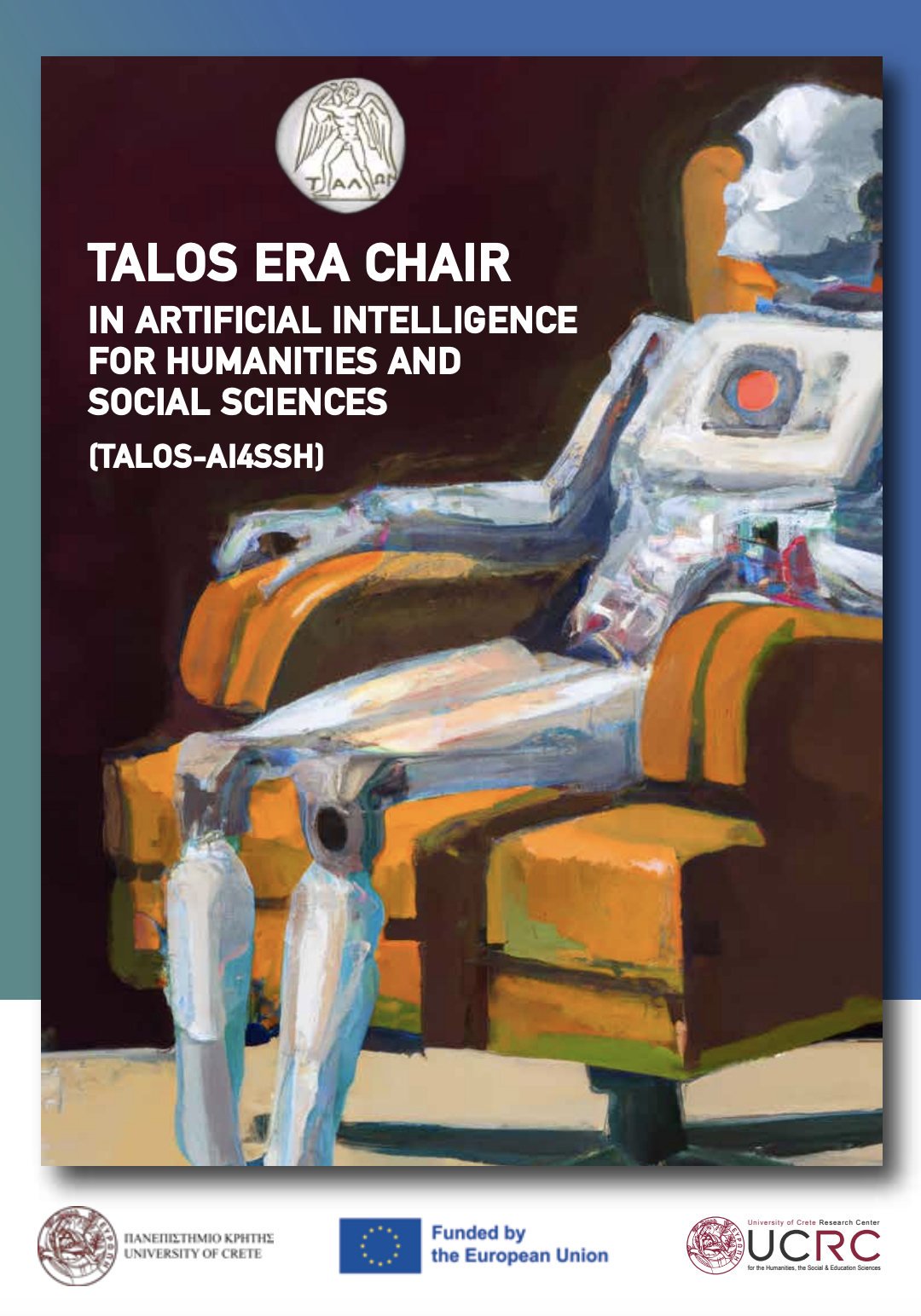AI for Social Sciences and Humanities
Topic outline
-

Welcome to the TALOS – AI for Social Sciences and Humanities MOOC!
This course introduces Artificial Intelligence (AI) to Humanists and Social Scientists, with no prior technical background required. Developed within the TALOS project, it focuses on building and applying FAIR datasets—Findable, Accessible, Interoperable, and Reusable—enriched with semantic technologies such as Knowledge Graphs, Ontologies, and Ontoterminologies.
The MOOC also explores practical tools and methods for semantic data creation, while addressing ethical and educational implications. Key AI concepts, including Large Language Models (LLMs) and Natural Language Processing (NLP), are introduced in context.
The course is structured into:
- Introduction Module
- Knowledge Graph Module
- Software Environments Module
-
In this introductory module, you will learn what Artificial Intelligence is and how it compares to human intelligence. You will explore the main AI approaches, including symbolic AI and neural networks, and understand the historical evolution of AI up to modern technologies like large language models. You will discover why AI literacy is essential for Humanists and Social Scientists, examine educational and social issues related to AI, and get an introduction to computational linguistics.
-
In this module, you will learn how Knowledge Graphs are used in the Social Sciences and Humanities to structure and link information. You will explore the standards and formats that make data interoperable and reusable, with a focus on W3C recommendations. You will also gain a clear understanding of what an ontology is, how it supports knowledge representation, and how it is applied in real-world contexts such as medicine, smart cities, and digital humanities. Finally, you will be introduced to key ontology representation languages like RDF and OWL.
-
In this module, you will be introduced to key software tools used to create and explore semantic data in the humanities and social sciences. Through guided demonstrations, you will see how Protégé and Tedi are used to build ontologies and ontoterminologies, how SPARQL enables querying of RDF data, and how LEAF-Writer supports semantic text encoding using TEI standards. You will also get an overview of how NLP notebooks can assist in basic language processing tasks. This module gives you a practical understanding of the tools behind semantic technologies in SSH.
